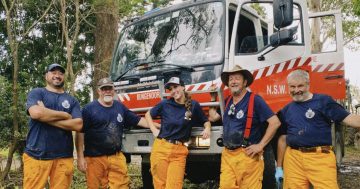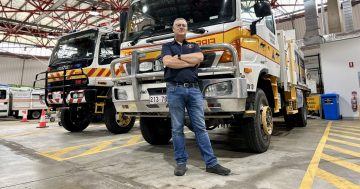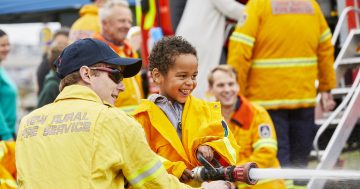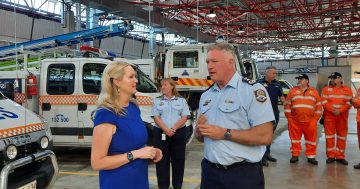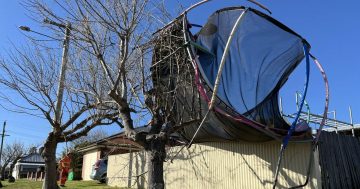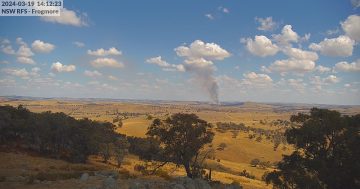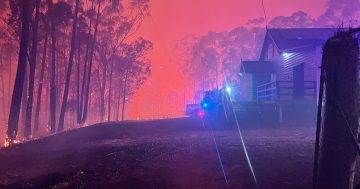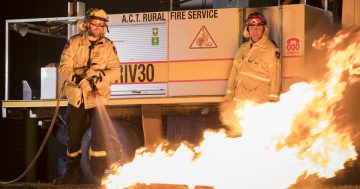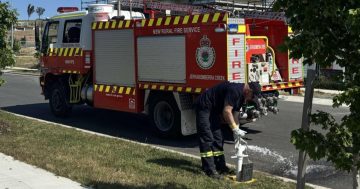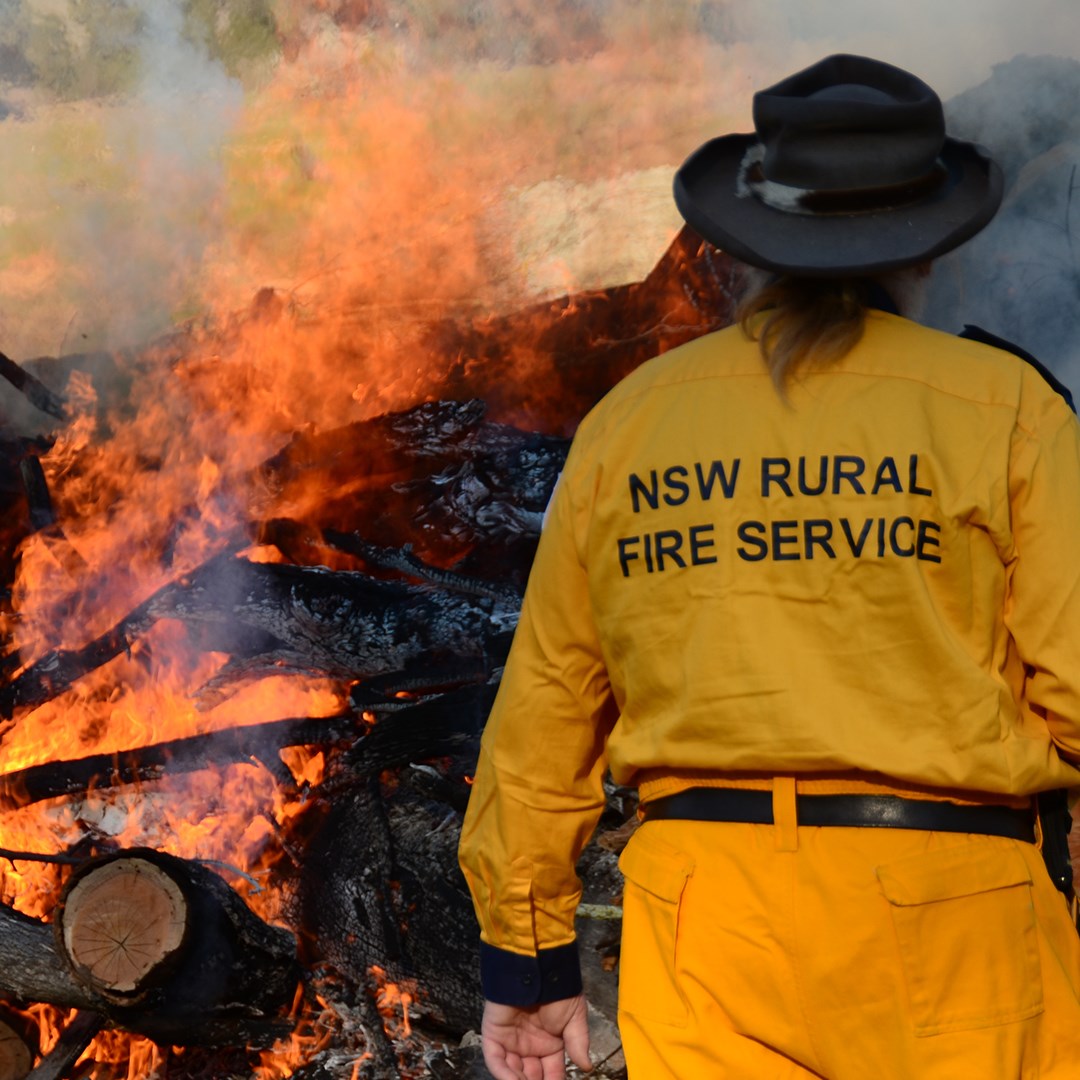
A member of the NSW Rural Fire Service faces a wall of flames – “it’s just what you do”, such volunteers will tell you. Photo: NSWRFS.
Another Rural Fire Service volunteer died this week. He was called out to a job – this day it was an “out of control” car fire. But he didn’t go home that night. He suffered a medical episode while fighting the blaze and died at the scene.
He gave his life to protect people and property – people he more than likely had never met, property he’d never seen.
Last month a 75-year-old veteran firefighter, who had racked up 13 years in the RFS, died when a tree fell on him. And just weeks before that, another RFS volunteer died when he, too, suffered a medical episode on the fireground.
Turns out Australia has the largest number of volunteer bushfire fighters in the world. Some are in no-horse towns that aren’t even on the map. They maintain old trucks that would be welcomed into museums, they care for equipment that can’t even remember what a better day looks like. They don’t have a bell or even a whistle, smart (any) uniforms or radios that can pick up something happening on the moon. They go out, the minute they’re called, to fires so fierce that they may never come home, yet they do it.
Moving to a tiny rural village years ago – and it was ever so many years ago in the days when it was perfectly fine for men to fight the fires and for women to make the sandwiches – I offered to join the brigade.
I’d heard lots of stories about this near-legendary crew, my favourite being when they were so quick to race out to the fire that they forgot to check if there was any water in the tank on the back of the truck. There wasn’t – and the fire burned itself out.
They were an an amazing bunch, these volunteers. Teachers, farmers, public servants, mums, dads, students – everyone had a skill to contribute. Be it coaxing the 1950s Bedford into action when all it wanted to do was remain idle, to knowing the landscape so well that they could predict where the fire was going, perhaps even before the fire knew.
As a volunteer bushfire fighter, I made great sandwiches. What I didn’t learn, as remains the case today, was how not to ask stupid questions – the fact that’s a double negative should have given it away.
Like when the crews come in for their break, I learned quickly, well, OK, not so fast, that you don’t ask them what it’s like out there. You just had to look at their faces, smell their clothes, watch them drink tea as if it were lifeblood. Then you’d know.
There are days when you wake up and know immediately it’s one of those days. When the hot night has broken into a sultry day, and when the confused wind starts going in every direction.
As we wake up to more of those mornings at this time of year, spare a thought, and as much as you can afford, be it money, time, resources – or just words of support, to these remarkable volunteers.
Ask them why they risk their lives for people they don’t know, and for no financial reward, you’ll likely hear the answer: “that’s just what you do”. Bless ’em.
To help the Rural Fire Service and its volunteers this Christmas, go to their website












